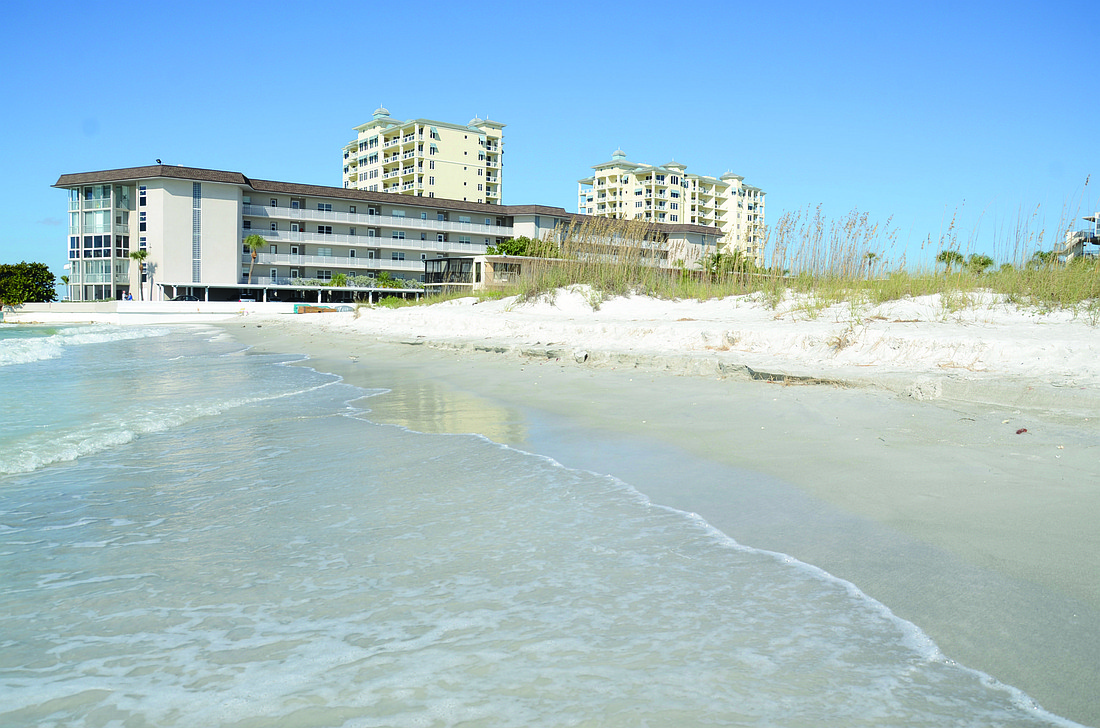- May 6, 2024
-
-
Loading

Loading

A proposal to dredge Big Pass as part of a project to renourish portions of the Lido Key shoreline has largely been stalled since a weeklong December hearing challenging the project, with both sides of the dispute waiting for an official transcript to be completed.
The December administrative hearing focused on the Florida Department of Environmental Protection’s decision to issue a permit for the proposed dredging. The project, a joint endeavor between the U.S. Army Corps of Engineers and the city of Sarasota, would take up to 1.3 million cubic yards of sand from Big Pass, which has not been dredged before.
Two Siesta Key organizations, the Siesta Key Association and Save Our Siesta Sands 2, filed an appeal challenging the permit. The groups contend dredging Big Pass will jeopardize the health of the Siesta shoreline to the south.
In addition to the city, the FDEP, the Army Corps and the Siesta Key organizations, the Lido Key Residents Association has also joined the dispute to support the proposed dredging.
The transcription — a necessary step before a judge can come to a conclusion on the hearing — was finished earlier this month.
Now, the attorneys in the case can use the 1,500-page document to submit in writing their recommended rulings and reasonings to the judge, which are due April 2.
Save our Siesta Sands 2 Chairman Peter van Roekens hopes the judge will issue a final judgment about 45 days after the recommendations are filed, though others involved anticipate it could take longer.
Both sides of the debate have said they’ll appeal the state administrative law judge’s decision if it’s not in their favor, possibly at the federal level.
SKA President Catherine Luckner said at a February meeting that she left the December hearing feeling encouraged.
“We’re not going to risk Siesta Beach for some unknown. It just doesn’t make sense.”
The Army Corps and the city “did not do a good project,” she said. “We deserve better. The Lido folks deserve better. This community deserves better.”
Luckner emphasized Siesta residents’ environmental concerns associated with dredging Big Pass, which she thinks have been overlooked. She thought the FDEP and the city were unable to show what they would do to reduce the need for future beach renourishment.
The proposed shoreline maintenance project calls for periodic renourishment of Lido’s beaches over a 50-year timeframe.
She maintains the state didn’t do its due diligence before approving this project, signing off on the plans without sufficient scrutiny.
“Seems to me that instead of the state of Florida being just a permitting agency, they ought to be the environmental protection agency,” she said.
Van Roekens echoed Luckner’s commentary, arguing the state has not been able to prove that it can accurately predict what kind of impact the dredging would have on the area.
“We’re not going to risk Siesta Beach for some unknown,” van Roekens said. “It just doesn’t make sense.”
The Lido Key Residents Association, meanwhile, continues to press for a conclusion to the challenge. Luckner points out that, aside from the Siesta Key groups’ opposition, funding for the renourishment work has not been allocated.
But LKRA President Carl Shoffstall said Lido residents see the appeal as a hurdle that needs to be cleared as soon as possible to secure an essential renourishment project.
Although Lido residents have tried to take steps to play a more active role in the proceedings, they’re resigned to the reality that much of the timing is beyond their control.
“We’re anxiously waiting to see what’s going to happen,” Shoffstall said.
Deputy Managing Editor David Conway contributed to this story.